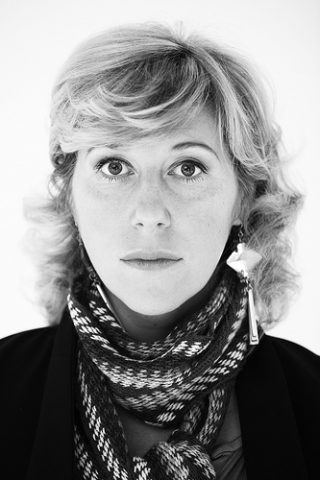Hearing Martha Wainwright sing Edith Piaf songs is like dashing through a high-end consignment shop—on LSD. Velvet and lace pass by in a blur while you surrender to the dark, dizzying lure of the saps and animal secretions used in vintage perfumes (but now banned by priggish bureaucrats).
Piaf’s most famous songs—“La vie en rose,” “Hymne à l’amour,” “Je ne regrette rien”—tell of love and survival in that Gallic knockout punch of a voice that rang out indomitable even as the woman Piaf died a wreck at age 47. (Marion Cotillard won an Oscar for her harrowing portrayal of Piaf’s struggles with illness and addiction in the 2007 film La Vie en Rose.)
Martha Wainwright bypasses Piaf’s greatest hits and takes us prowling through the shadowy alleys of the Little Sparrow’s songbook. While she can’t summon her legendary predecessor’s molten-lava tones, Wainwright’s swoops, whispers, growls, and trombone-like honks are ideally suited to the anguish and rage of these remarkable songs.
That Wainwright is a superb French stylist is no surprise. She grew up in Quebec (with her late mother, the folkie Kate McGarrigle, and brother Rufus), and she released an achingly gorgeous cover of Barbara’s “Dis, quand reviendras-tu ?” in 2005. The surprise, instead, comes from the depth of emotion and imagination that she lavishes upon these songs. Backed by the gonzo trio of Brad Thomas (piano), Doug Wieslman (guitar), and Brad Albetta (bass), she makes something cosmic of “Et soudain, une vallée,” her voice rising sweet out of shimmering arpeggios.
Wainwright walks the thin line between revelry and nightmare, giddiness and madness, in her stunning juxtaposition of “La foule” (the story of a woman caught up in a street party) and “Les blouses blanches” (which tells of a stay in a mental hospital). The faintest ray of sunlight sweetens her voice in the melancholy “Adieu mon cœur,” while she and her trio unfurl both a cappella harmonies and thumping, gritty rhythms in “Une enfante.” She pays tribute to her mother, too, with powerful renditions of “Tell my sister” and “Cheminant à la ville.” (McGarrigle, incidentally, performed in the first Dixon Place series of Piaf shows released as Sans fusils, ni souliers, à Paris: Martha Wainwright’s Piaf Record, a must-have CD that is still unreleased in the United States.)
The Mittenstrings, a trio who combine ethereal, saturated harmonies with a drop of acid, open for Wainwright. (Their setting of William Blake’s haunting “The Garden of Love” is not to be missed.)
Wainwright sings one last Piaf show October 25 at 6pm at Le Poisson Rouge. The Mittenstrings can be heard October 26 as well, at the Rockwood Music Hall.


What Do You Think?